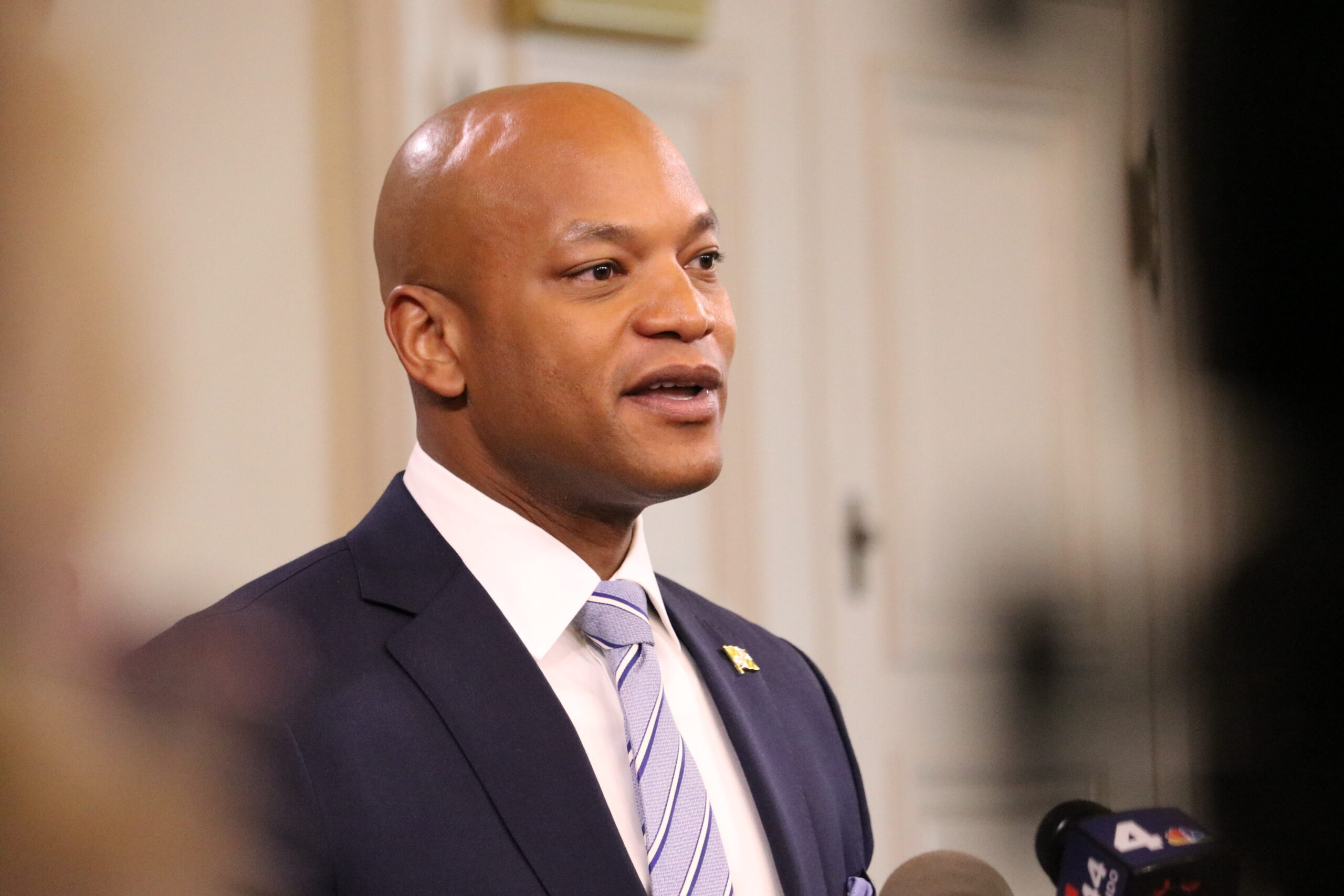Moore administration previews housing legislation as Marylanders face housing crisis

Gov. Wes Moore’s long-anticipated plan to tackle housing issues this legislative session is taking shape, as the governor’s office released a three-part outline Monday highlighting areas where his administration thinks they can best tackle Maryland’s affordable housing issues.
The governor’s legislative package will include three bills that would attempt to expand available housing, attract federal funding to development initiatives, and enhance protections against eviction for renters.
The memo from the governor’s office says that Maryland has a housing shortage of about 96,000 units, a figure that would likely grow if the state does not address the issue.
“Over the last 10 years, Maryland has significantly underproduced housing which has added to this shortage at a rate of 5,600 units per year on average,” the memo says. The supply shortage also makes it difficult for Marylanders to become homeowners.
The bills have not yet been introduced to the General Assembly, which started its 90-day annual session a week ago.
“It’s going to be very much a housing session,” Senate President Bill Ferguson (D-Baltimore City) said Tuesday. He said he has not seen the governor’s legislation, but the Senate would be “reviewing it closely.”
The first bill in Moore’s proposed legislation is called the “Housing Expansion and Affordability Act of 2024.” It aims to incentivize new affordable housing development and would permit properties to be developed with higher density and in a more expeditious manner so long as the developers provide a certain amount of affordable housing.
For example, a property that would be developed within one mile of a passenger rail station and would include at least 25% affordable housing units could receive a “density bonus,” allowing more units to be built in the area than typically allowed.
A non-profit 501(c)(3) organization that wants to build a housing development that would contain at least 50% affordable units would also qualify for the density bonus. The same incentives would apply to historic properties that were formerly owned by the state and were built at least 50 years ago.
Density bonuses would be “sensitive to local zoning decisions,” the administration said. The bill would also exempt some low-income housing projects that qualify for state funding from local adequate public facilities ordinances, which set requirements for community infrastructure and amenities.
The bill would also permit new manufactured homes in single-family residential zones.
The second bill is called the “Housing and Community Development Financing Act.” It would create the Maryland Community Investment Corporation, which would make loans or investments aimed at developing and improving communities.
The Moore administration says that creation of the Maryland Community Investment Corporation would direct an estimated $50 million in federal funding to invest in community projects in the state.
Tenant component
Dubbed the “Renters Rights and Housing Stabilization Act,” the final component to Moore’s housing package seeks to better protect renters from certain evictions and give renters the opportunity to purchase a rental property if the property owner decides to sell it.
The bill would establish an Office of Tenant Rights to communicate with and advocate for renters in Maryland, providing them information on how to best exercise their rights as renters.
The legislation would also give renters the “Right of First Refusal.” If a landlord wants to sell a property that is being rented, the tenants who are renting it would be given a chance to buy it before it is sold to another landlord or would-be buyer, within a certain time period.
The opportunity would go to renters in single-family homes as well as for a group of tenants in complexes with four or fewer units. The Office of Tenant Rights would be available to help tenants navigate the purchasing process.
To discourage needless evictions, the legislation proposes raising the eviction filing fee in Maryland from $8 to $93, or just below the national average, according to Moore staff, which could generate new state revenue of $25 million to $30 million.
The legislation would bar evictions during times of extreme weather conditions and other public health emergencies.




 Creative Commons Attribution
Creative Commons Attribution